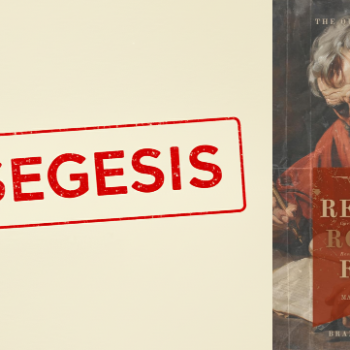Are we truly rational animals or not?
What is a rational animal? In philosophy, especially scholasticism, the concept of humans as rational animals means that humans, through reason and free will, operate on higher rational and moral levels than irrational animals held captive by mere emotions, instincts, and stimulations. In this article, I will examine the concept of humans as rational animals and evaluate this concept considering modern issues of sexual morality. I chose sexual morality because it branches out to other areas, like contraception, abortion, and gender identity. Are we prisoners of our base emotions, instincts, and simulations or can we rise above these to live moral lives through the proper use of reason?
What Does a Rational Animal Look Like?
Pragmatically, a rational animal is one who uses reason to make proper moral choices. When presented with doing the good or giving into base emotions, instincts, and stimulations, the rational animal chooses to do the good. For example, when presented with the opportunity to engage in an intimate sexual relationship, a rational animal asks the following questions:
- Am I emotional and mentally ready to engage in this activity?
- Do I embrace the full procreative nature of my partner?
- Will this action have irreversible consequences? For example, result in a pregnancy.
- Will this action mutually benefit myself and my partner?
The rational animal knows that the best context for this type of intimate sexual relationship is the traditional and time-tested context of matrimony. Such a context provides the best environment to nurture new human life. Taken out of this context, the irrational animal results in the proliferation of sexually transmitted infections (STIs) and abortion. In a word—suffering. Let us all encourage rational sexual behavior.
The Rational Pregnancy
Furthermore, pregnancy does not happen by magic. It takes an action that requires two compatible parts. No action performed, no pregnancy occurs. Those who engage in rational pregnancy do not engage in the action until ready to deal with the consequences, thereby removing the need and possibility of contraception and abortion. Let us encourage rational pregnancy.
Our Fallen Reason
Moreover, many of my critics may call foul because I appear to overemphasize the power of reason while also holding to the Catholic doctrine of Original Sin. Now, let me clarify that many confuse the doctrine of Original Sin with the Protestant Calvinistic doctrine of Total Depravity. While these two doctrines differ greatly, they do address the same event—the fall of humanity into sin. Below shows the differences between the two doctrines.
Original Sin: As a result of original sin, human nature is weakened in its powers, subject to ignorance, suffering, and the domination of death, and inclined to sin (this inclination is called “concupiscence”). (Catechism of the Catholic Church, section 418)
Total Depravity: Man fell into a state of sin by his disobedience and so completely lost his ability to will any spiritual good involving salvation. Consequently, fallen man is by nature completely opposed to spiritual good, is dead in sin, and is unable by his own strength either to convert himself or to prepare himself for conversion. (Westminster Confession of Faith, Chapter IX, Section 3)
Wikipedia nicely puts Total Depravity another way as “every person born into the world is enslaved to the service of sin as a result of their fallen nature…”
Original Sin Vs. Total Depravity
The key differences between the Catholic view of Original Sin and the Protestant Calvinist view of Total Depravity are the words concupiscence and enslaved. As stated below in section 405 in the Catechism of the Catholic Church, humanity lost holiness and justice, not the ability to use proper reason. Humans, therefore, now possess an inclination to evil but not total corruption.
Although it is proper to each individual, original sin does not have the character of a personal fault in any of Adam’s descendants. It is a deprivation of original holiness and justice, but human nature has not been totally corrupted: it is wounded in the natural powers proper to it, subject to ignorance, suffering and the dominion of death, and inclined to sin – an inclination to evil that is called “concupiscence”.
Conversely, the Protestant Calvinist views human nature as wholly corrupt and incapable of any spiritual good, which to Protestant Calvinism equates to the only truly good (Romans 3:12). Humans choose according to their desires and, due to the Fall, humans desire evil. Contrary to this view, Catholicism teaches that human free will as tied to humanity’s creation in the image of God. This image, not lost in the Fall, just diminished.
God created man a rational being, conferring on him the dignity of a person who can initiate and control his own actions. “God willed that man should be ‘left in the hand of his own counsel,’ so that he might of his own accord seek his Creator and freely attain his full and blessed perfection by cleaving to him.” Man is rational and therefore like God; he is created with free will and is master over his acts. (Catechism of the Catholic Church, section 1730)
Are We Truly Rational Animals or Not?
In conclusion, to ask the question of whether humans are rational animals or not is valid. Do we hold our fellow humans in such low regard that we write them off as incapable of reason and free will? True, we do possess a damaged nature due to Original Sin, but we still retain our reason as image-bearers of God. We still possess the freedom to act according to reason and not in reaction to emotions, instincts, and stimulation. Let’s challenge and support one another to act as rational animals. To do so would elevate much pain and suffering brought about through irrational choices and a society that provides services (like abortion and contraception) that attempt to remove the consequences of those choices. In short, we can do better. We can be rational animals.
Like and follow me on Facebook and Twitter.













